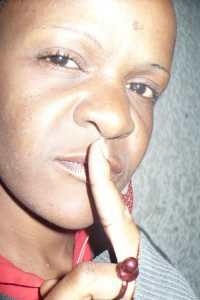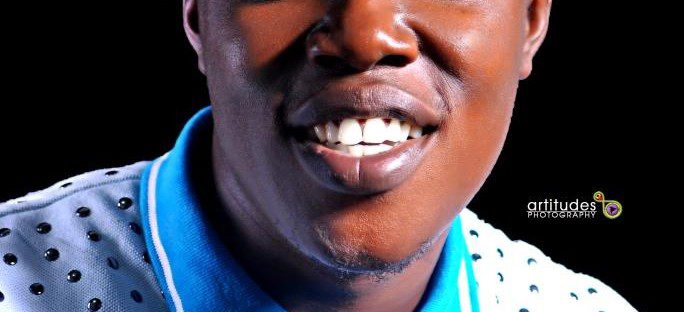Every week, we’ll be interviewing our #Babishai2016 Poetry Festival guests. This week, it’s L-Ness from Kenya. Her session is for children. Babishai Poetricks is in for a treat. L-NESS alias Lioness is a Poet, a Femcee, a Hip Hop Cultural Specialist, and one of the top lyricist and performance femcees of Hip Hop in the region. Her first album is titled SIMANGWE 2011 and the theme is ‘’Don’t Stop the Music’. One of the songs in this album is being used by Music Copyright Society of Kenya as their campaign theme song against piracy and artist exploitation.
- Explain if you are you the poet you wanted to be 5 years ago.
In actual fact, I am growing to be more than the poet I wanted to be five years ago. I started as a rapper and transformed into a Mc/Femcee. I have been blessed and privileged to share the same stage with international poets from all over the world in events like the Poesiefestival 2015 and the Spoken Worlds 2014 concert, both in Berlin. I didn’t even know I was a poet. Other poets and institutions involved in the Poetry and Spoken Word arena like Kwani and Storymoja in Nairobi, Kenya and Literaturewerkstatt in Berlin, Germany, identified me as a poet. They read my translated poems/rap verses and saw my live stage performances and creative writing workshops and considered it poetry. Due to the direction I choose my poetry to take, I am able to tackle selective topics that open discussions which generally people are hesitant to talk about like politics, religion and worship jealousy (Terrorism), social issues, cultural issues, woman power and leadership in Africa.
- Poetry is subjective and yet all talent needs to be nurtured. How has this fact influenced your work?
The subjective nature of poetry has influenced different ways of performing, recording, publishing and distributing my works. Some suggest that language and logic are predominantly functions of the left side of the brain, while music/sound is processed in the right side of the brain which deals largely with feeling and emotions. I combine my poetry with musical accompaniment, in addition to the fluctuating tones that I incorporate in my performance poetry, in order to evoke spontaneous reactions from the listeners.
The subjective nature of poetry has also influenced the content of my works, since I aspire to inspire and empower through my poetry thus nurturing young minds. Positive content from any art form contains messages that must protect the listener’s eyes and ears, in order to protect their emotions, thus protecting their hearts and minds. Poetry has the power to mould minds by sharing views on lifestyles and moralities, either godly or ungodly. You find that most African poetry is about our good values, rich history, our struggle and our grappling with the question of how to get to where we ought to be as a continent globally. This is simultaneous with conserving and preserving the positive aspects of our culture and heritage.
- Tell us a bit how Rapercussions began and how it’s grown?
RAP + PERCUSSIONS is the definition. It is the ancient essence of our communication. It combines conscious poetry and rap alongside live traditional African percussion instruments like Obokano, Marimba, Shakers, Nyatiti, Orutu, Kayamba, Nzumali and reed flute.
The concert was launched at the Goethe Institute Auditorium in Nairobi, Kenya, on the 12th of June 2015, and the coverage was featured in the African Journal Documentaries.
The educative element of Rappercussion then featured at the Storymoja Festivals on the 16th to the 20th of September 2015, and it was at the Nairobi Arboretum in Kenya.
The concert has grown into a monthly event at the Tree House in Nairobi, Kenya. It involves more poets and Mcs like Mwafreeka and Monaja. The accompanists and participating team are currently developing a center where people can come and learn how to make and play these traditional instruments.
It has also grown beyond the borders of its origin, to the level of being featured at the Babishai Poetry Festival 2016, which will be at the Kampala Museum, in Kampala, Uganda. This is where there will be simple explanations about the different functions of these traditional instruments, in the past and at the present, with enlightenment on which community each instrument emanates from.
- Your session at the Babishai Poetry Festival is entitled, Roots and Rhymes. Who is the target and what can they expect?
The children are the target, which means that the content is suitable for all age groups who desire to earn back the pride of our culture and heritage.
They should expect to:
- Learn performance techniques with active participation from their side.
- Connect traditional ways of storytelling with current methods of creative writing and performing poetry.
- Learn about our traditional instruments, their origins, materials used to make them, functions and roles.
- Why was it important for you to accept our invitation?
I respect every chance I get to exchange and share cultural values and heritages which empower others while at the same time being a growth and learning experience for me.
As an African woman, whose content is about Africa, I feel it is a great privilege to be able to visit other parts of this continent in order to broaden the content of my poetry through the different contexts where I get to visit.
- What are the two main subjects you find yourself constantly writing about?
- Women empowerment because it is through Woman that society gets empowered, everyone in society is related to her as she is somebody’s daughter, someone’s sister, somebody’s mother, someone’s aunt, somebody’s sister-in-law, someone’s grand-mother, another person’s first cousin or distant cousin. All those connected to her therefore, need to be empowered. So Woman empowerment boils up to Family empowerment and hence total Society empowerment. Society is made up of families and that is what make our continent.
- Socio-Political Issues because leadership affects how we develop or under-develop as Africans. We are very hard and smart working citizenry but are being dragged behind by social vices like corruption, income inequalities, tribalism and nepotism. These are leadership related issues.
- How do you feel towards art for social change?
Art for social change must be greatly advocated for because:
- It is the job of the writer to observe and put out, as a wake-up call to what is going on.
- Poetry gives people true solutions.
- We can incorporate our own empowerment in poetry instead of depending on foreign aid.
- Social progress is attributed to freedom and empowerment of the woman, and social decadence is directly associated with a decrease and lack of that freedom, yet, women are naturally talented and gifted in the arts.
- Society suffers from dilemma of equality, the dilemma of difference and the dilemma of identity. Poetry and other arts create adversity in the middle of diversity.
- There is over-emphasis on African problems, thus poetry and the arts builds confidence and showcases raw talent and original ideas, as positive aspects of the African society.
- We look forward to hosting you. Any concluding remarks?
Your invitation is deeply appreciated and I look forward to the Babishai Poetry Festivals, where we get to network with other poets from the globe. Thank you very much for this priviledge.
We’re grateful to Praxis Magazine online for supporting the #Babishai2016 Poetry Festival. For more details, email festival@babishainiwe.com or call +256 751 703226.


